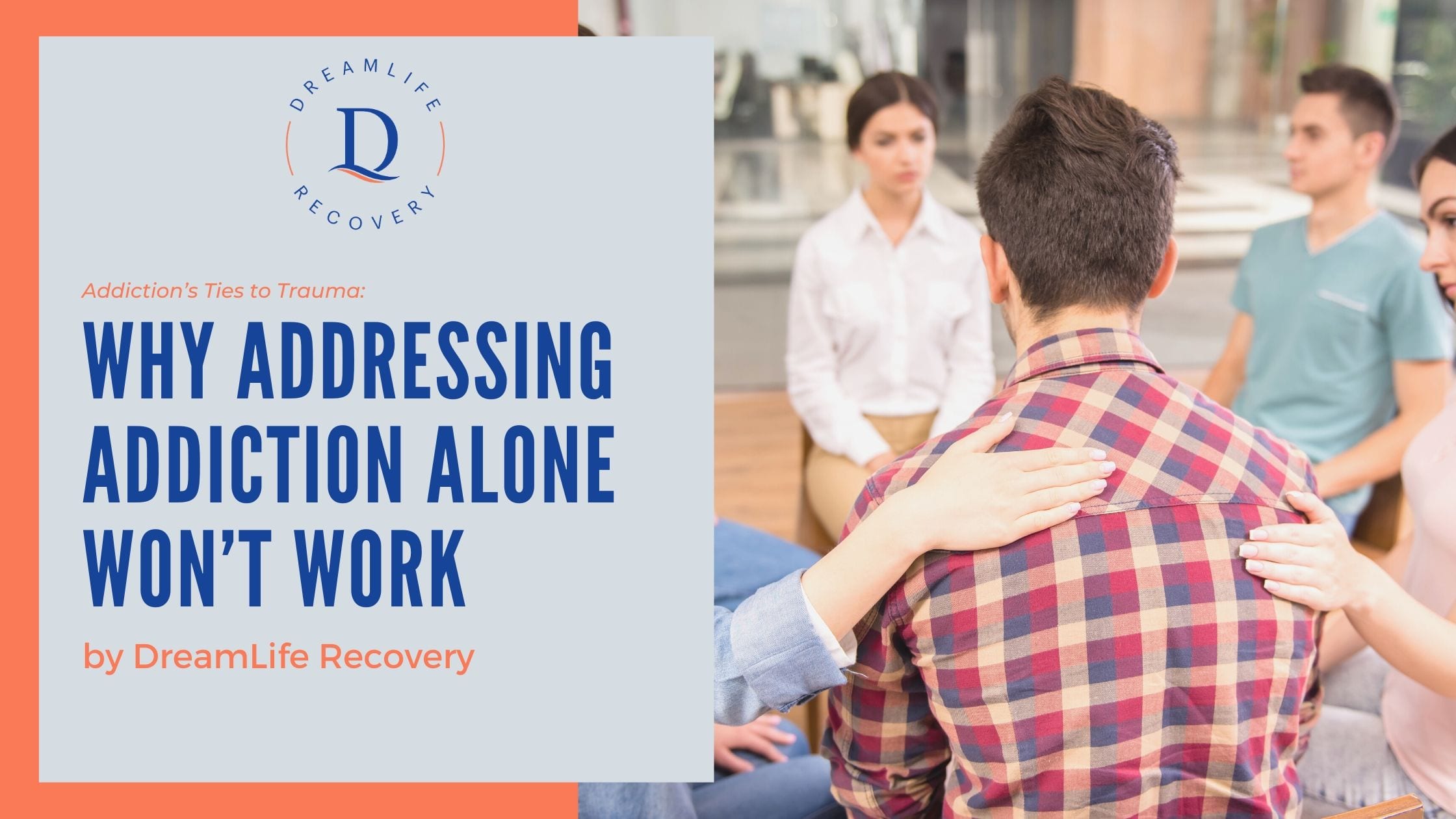Why Addressing Addiction Alone Won’t Work – Addiction and Trauma


Written By
DreamLife RecoveryHistorically, substance abuse treatment was a single-focus intervention–to get the “addict” to stop using. Clinically, counselors and therapists only focused on the addiction perhaps assuming that other issues could be resolved at a later time in in recovery by another provider. A case could be made for prioritizing sobriety over other issues, as no underlying issues related to the substance abuse can be resolved while a person is still struggling with the addiction. But what wasn’t taken into account is the reality that a majority of individuals suffering from addiction have also been victims of violence and other forms of abuse at some point in their lives and that those traumas are part of the issues that led to the addiction. During the past decade in the health care industry, there has been increased awareness of the connection between traumatic experiences and subsequent mental health and substance abuse.
Understanding Trauma
Trauma is not limited to physical violence or sexual abuse, it may include witnessing violence, stigmatization of identity, oppression, discrimination and incarceration. Terms such as violence, trauma and abuse are often used interchangeably, but trauma is really the individualized response to abuse, violence, or negative experience. Specifically, when those experiences cannot be properly integrated into memories because of the intense emotional, physical, and mental reactions to them, they become internalized as traumas, which come with a range of symptoms and triggers that make it hard for the person to recover and move on from them.
Understanding Addiction
The field of addiction medicine has undergone significant transformation. In the recent past the goal was to assist an individual to get sober (detox) and stay abstinent with an overly simplified focus on stopping the person from using the substance of choice. Addiction, like other diseases have been reconceptualized in recent years to include a more holistic perspective of health, inclusive of the physical, emotional, psychological, spiritual, environmental and sociopolitical influences and impacts. Addiction remains to be considered a “chronic, progressive disease.”
Individuals struggling with addiction are more likely to experience co-occurring disorders, such as mood disorders (depression, bipolar), anxiety disorders, dissociation, post-traumatic stress disorder (PTSD), personality disorders and even process addictions (eating, gambling, sex/love/relationship).
The Relationship Between Trauma and Addiction
When individuals are exposed to trauma and are never able to properly grieve or seek resolution, natural defense mechanisms of repression and suppression occur. The trauma-associated emotions are never fully actualized or processed, and their mind is unable to resolve the traumatic event. Because of this inability to resolve the trauma, the individual may experience emotions like fear, dread, shame, blame and guilt surfacing without feeling able to control or understand why and may try to escape the pain through self-medication. The use of alcohol and
other mind-altering substances becomes a way to cope with these upsetting emotions, thoughts, memories and reactions to triggers related to the trauma.
Although initially the person may not be consciously using the substances to push away the intrusive thoughts or feelings related to the unresolved trauma, they may register on an unconscious level that using that substance made them feel better temporarily. They may then develop a psychological dependence on the substance, which can progress to physical dependence and addiction.
However, the relationship between trauma and addiction is a two-way path: trauma increases the risk of substance abuse/use and substance abuse/use increases the risk of being retraumatized through engaging in risky behavior(s). This can quickly become a vicious cycle leading to further physical and psychological damage. Thus, in addiction treatment programs, addressing trauma usually plays a critical role in setting the foundation for recovery and sobriety.
Addressing Trauma in Addiction Treatment: The DreamLife Difference
There has been a growing consensus that standard Substance Use Disorder (SUD) treatment fails to address the underlying cause of addiction and leaves clients vulnerable to relapse. This is because people who struggle with addiction are not choosing to use substances out of boredom or for fun but to gain relief from overwhelming and debilitating emotions that are often the result of past traumas.
Failing to address traumatic incidents and not providing tools to regulate overwhelming emotions leaves individuals vulnerable to relapse when they are challenged by traumatic cognitions. For treatment to be effective, it must address substance abuse and trauma in an integrated fashion and only addressing addictive behaviors through cognitive-behavioral therapy (CBT).
Science shows that by 60 – 90 days of sobriety, the dissociative, disconnected mental state that the individual had been living in during active use recedes and the emotions they may have been trying to suppress resurface. Emotions related to unresolved trauma are often overwhelming, and the impact of the emotions are so great that the relief from these emotions becomes more important than avoiding the consequences from negative behaviors such as substance use.
At DreamLife Recovery, we have board-certified psychiatrists and psychiatric nurse practitioners on staff full time, in addition to certified addictionologists and internists. Every client that comes to DreamLife for treatment receives a medical and psychological assessment during admission to get a holistic view of what therapies and treatment goals to focus on in their individualized recovery plan. Our clinical team is comprised of master and doctoral level psychotherapists and specialists, including traumatologists, EMDR practitioners, sex, love and relationship experts, and certified CBT and dialectical behavioral therapy (DBT) practitioners.
Part of every client’s treatment plan includes a full trauma evaluation that will match them with one of our traumatologists or specialists to further explore and address the unresolved trauma/abuse. In addition to trauma resolution, clients will participate in CBT and DBT sessions, both evidenced-based therapeutic measures that will enhance their coping skills. Our
psychological trauma programming coupled with our on-site somatic amenities, makes DreamLife’s residential addiction and trauma treatment program unrivaled.






